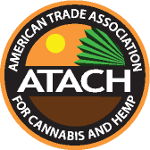Georgia
1. Overview of Cannabis and Hemp Laws
Cannabis:
- Recreational Use: Recreational cannabis remains illegal in Georgia. Some cities, such as Atlanta and Savannah, have reduced penalties or decriminalized small quantities for personal use.
- Medical Use: Limited medical use is permitted through low-THC oil (≤5% THC) for certain medical conditions. This was established with HB 1 (2015), known as “Haleigh’s Hope Act,” and expanded by HB 324 (2019), which allowed in-state cultivation and low-THC oil sales.
Hemp Intoxicants and Synthetic THC:
Delta-8 THC is permitted under Georgia’s Hemp Farming Act (O.C.G.A. § 2-23-1 to § 2-23-12), although synthetic THC compounds may be regulated as controlled substances.
2. Historical Context
- 1980: Georgia passed legislation allowing medical marijuana for glaucoma and cancer-related nausea, though the law was not implemented.
- 2015: HB 1 legalized low-THC cannabis oil for certain medical conditions.
- 2019: HB 324 authorized in-state cultivation and retail sale of low-THC oil for medical use.
- 2023: Georgia’s first licensed medical marijuana dispensaries opened.
3. Recreational Cannabis Laws
- Possession Limits: Recreational cannabis is illegal, though some cities impose reduced penalties for small amounts.
- Cultivation: Cultivation for recreational use is not permitted.
- Public Use: Public consumption of cannabis is prohibited throughout Georgia.
- Sale and Retail: Only licensed dispensaries are permitted to sell low-THC oil to qualified medical patients.
4. Medical Cannabis Laws
- Patient Eligibility: Qualifying conditions include cancer, epilepsy, PTSD, intractable pain, and other specified illnesses.
- Product Access: Only low-THC oil is permitted; other forms, such as edibles and flower, are prohibited.
- Program Details: Patients must register with the Georgia Department of Public Health to obtain a medical cannabis card, granting access to dispensaries for low-THC oil.
5. Hemp-Derived Intoxicants Regulations
- Regulatory Status: Delta-8 THC is permitted if it meets federal hemp standards (≤0.3% delta-9 THC) and is regulated under Georgia’s “Hemp-Specific Framework.”
- Testing and Labeling: Products must include clear labeling of THC content, batch ID, and lab testing results. Compliance is overseen by the Georgia Department of Agriculture.
- Age and Retail Restrictions: While there is no specific state age requirement, retailers typically restrict sales to individuals 21 and older.
6. Criminal Penalties for Cannabis Offenses
- Possession:
- Up to 1 ounce: Classified as a misdemeanor, punishable by up to 1 year in jail and a fine of up to $1,000.
- Over 1 ounce: Treated as a felony, with penalties ranging from 1 to 10 years in prison and fines up to $5,000.
- Sale and Distribution: Penalties range from 1 to 30 years, depending on the quantity and proximity to schools or parks.
- Cultivation and Trafficking: Penalties increase with quantity, with sentences reaching up to 30 years for large amounts.
7. Social Equity Programs
- Eligibility and Licensing: Georgia currently does not have a formal social equity program for hemp or cannabis businesses.
- Licensing Benefits: There are no preferential licensing options or reduced fees available for applicants from communities impacted by previous cannabis law enforcement.
8. Business Licensing and Operations
- Licensing Types: Licenses are required for hemp cultivation and processing, and are issued by the Georgia Department of Agriculture. Licensing fees vary from $1,000 to $25,000 depending on the size of the operation.
- Operational Requirements: Licensed businesses must comply with testing, labeling, and regulatory standards under Georgia’s hemp laws.
